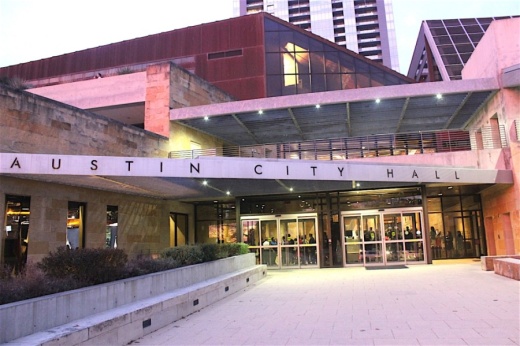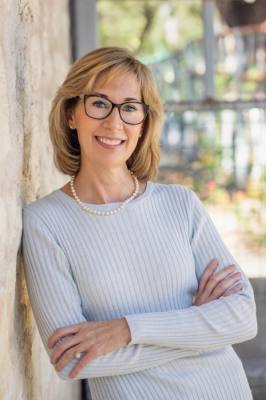In the fall, ahead of the Nov. 3 elections, Community Impact Newspaper asked every Austin City Council candidate the same five questions, which cover topics from public safety to housing and coronavirus recovery. Their answers were limited to 75 words each and were printed verbatim.
In District 10, incumbent Alison Alter and challenger Jennifer Virden advanced to a runoff after no candidate in the race received more than 50% of the vote. Their answers are reprinted here. Early voting began Dec. 3, and election day is Dec. 15. You can find voting locations and hours here.
Austin City Council District 10
Small businesses have suffered significantly since the city first issued a stay-home order in March. Countless local names, such as Magnolia Café, have had to permanently shut their doors. As a City Council member, what would be your plan to ensure more local businesses do not suffer the same fate?
AA: I co-led the creation of the City’s COVID-19 financial assistance programs for local businesses, nonprofits, and childcare centers. We must do more. I’ll continue to champion investments in our businesses so they can stabilize and recover from this pandemic, including additional loans, grants and exploring flexible property tax options. I recognize the city alone cannot finance the type of aid necessary to address this crisis, so I will continue to advocate for state [and] federal investments.
As the city switches into recovery mode, how would you ensure the safety of those who have continued to go to work and those who will be returning to work?
AA: I’ll listen to our health experts and be guided by science. I’ll continue to champion rapid and accessible testing, PPE distribution and temporary lodging facilities for workers exposed to COVID who cannot safely isolate at home. I’ve led efforts to make child care available for essential workers, and I’m proud to be endorsed by our city’s civilian employees union, AFSCME, and our EMS Association because of my commitment to the health and safety of our workforce.
The Lions Municipal Golf Course has been a pressure point in city politics over the last several years. What is the ideal fate for the Lions Municipal Golf Course, and how would you work as a City Council member to accomplish it?
AA: I’ve worked hard to preserve Muny for future generations of Austinites. I will never support the development of Muny, and I believe we have the tools and partners to secure Muny’s future as a publicly accessible green space. Private philanthropic entities, such as the Muny Conservancy, or partnerships with the Save Historic Muny District, ideally, will allow us to secure the space, renovate the course and make historically appropriate updates to the clubhouse.
In August, City Council unanimously supported a significant reduction to the Austin police budget with a commitment to reimagining public safety. As a City Council member, what will you bring to the ongoing debate over how to reimagine public safety?
AA: I believe Austin can root out racism and ensure public safety. I’ve worked on police reform since 2017—I’ve focused on increasing accountability and oversight through our police contract. I helped create our Office of Police Oversight, improved our sexual assault response system and proposed our newly adopted Office of Violence Prevention. I’ll keep fighting for officers to be well-trained and support strategies that prevent crime and violence in the first place.
Austin has endured a growing housing affordability challenge, often attributed to housing stock that has not kept up with demand. How would you approach the issue of housing, and how do you plan to address Austin's need for more housing?
AA: I opposed CodeNEXT because it favored special interests, not housing affordability. I’ve pushed for developers to contribute more toward affordable housing and their infrastructure demands. I’ve successfully increased the general and senior homestead exemption to help address housing affordability. I’ll keep fighting to ensure developers pay their fair share and to champion public investments in affordable housing. We can add housing that is targeted to transit corridors and “centers,” like the Domain and Downtown.
Small businesses have suffered significantly since the city first issued a stay-home order in March. Countless local names, such as Magnolia Café, have had to permanently shut their doors. As a City Council member, what would be your plan to ensure more local businesses do not suffer the same fate?
JV: I would open this town for business. Let’s allow business owners to open their businesses as they see fit, and let’s allow the residents of Austin decide for themselves whether or not they want to patronize those businesses. Consumers vote with their dollars. These small, iconic businesses of Austin, Texas will all have to permanently shutter their doors forever if we do not give them a better chance to survive.
As the city switches into recovery mode, how would you ensure the safety of those who have continued to go to work and those who will be returning to work?
JV: First of all, we cannot ensure the safety of all workers in the city. We’re far enough into this pandemic now that Austinites know what the proper hygiene practices are to avoid spreading viruses, which include frequent hand-washing, covering one’s mouth when sneezing or coughing and social distancing when one feels it’s appropriate. Austinites are capable of taking responsibility for their own safety and behaving accordingly.
The Lions Municipal Golf Course has been a pressure point in city politics over the last several years. What is the ideal fate for the Lions Municipal Golf Course, and how would you work as a City Council member to accomplish it?
JV: My ideal fate for the Lions Municipal Golf Course is that it remain a golf course. That property is owned by UT and leased by the city of Austin. UT has made it clear they need more value for Muny. One idea is for the [city] to offer increased zoning entitlements on other UT properties that UT intends to redevelop around the city in return for a renewed long-term lease of Muny to the city.
In August, City Council unanimously supported a significant reduction to the Austin police budget with a commitment to reimagining public safety. Do you support this decision? As a City Council member, what will you bring to the ongoing debate over how to reimagine public safety?
JV: I support fully funding community policing initiatives, which are proven to build rapport and reduce crime; City Council has repeatedly underfunded APD staffing in this regard. I do not support “defunding the police” of resources necessary to protect life and property. I don’t support canceling cadet classes, canceling open positions or having social workers solely respond to family disturbances.
Austin has endured a growing housing affordability challenge, attributed to housing stock that has not kept up with demand. How would you approach the issue of housing, and how do you plan to address Austin's need for more housing?
JV: Let the free market work without inefficient government meddling. We are fortunate to have an abundance of experienced and creative architects and builders in this city. What doesn’t help [are] the [city]’s incredibly cumbersome review and permitting processes;
www.austintexas.gov/department/zucker-final-report-0. Further, in regard to improving affordability, increased fees assessed to builders by the city don't just "get absorbed by the builders"—those fees are passed directly on to the consumer, negatively affecting affordability.









